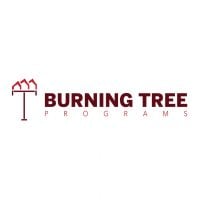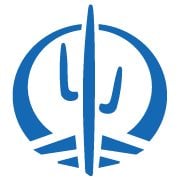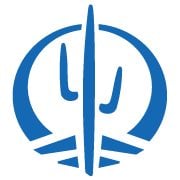Tucson Alcoholic Recovery Home
Drug Rehab Center in Tucson, Arizona
- Substance Abuse
- Opioid Addiction
- Drug Addiction
- Alcoholism
Tucson Alcoholic Recovery Home is a fully accredited substance abuse and addiction treatment facility offering individualized treatment plans, evidence-based practices, and a wide range of services to help patients achieve long-term recovery.
About Tucson Alcoholic Recovery Home in Arizona
Tucson Alcoholic Recovery Home is a substance abuse and addiction treatment facility located in Tucson, Arizona. The facility provides a range of services to meet the needs of their patients, including detoxification, inpatient services, outpatient services, and aftercare planning. They focus on providing individualized treatment plans and evidence-based practices to help their patients achieve long-term recovery.
At Tucson Alcoholic Recovery Home, patients have access to a wide variety of services including cognitive-behavioral therapy, 12-step meetings, family therapy, one-on-one counseling, and group therapy. Their team of experienced and dedicated professionals provide a supportive environment and the tools their patients need to build the foundation for lasting recovery. They also offer holistic therapies, such as yoga and meditation, to incorporate physical, mental and spiritual well-being into treatment.
Tucson Alcoholic Recovery Home is a fully licensed and accredited facility, as well as a member of the National Association of Alcoholism and Drug Abuse Counselors (NAADAC). They are also nationally accredited by the Commission on Accreditation of Rehabilitation Facilities (CARF), and the Joint Commission on Accreditation of Healthcare Organizations (JCAHO). Their commitment to providing the highest quality of care for their patients is evidenced by their numerous awards and recognition.
Genders
Ages
Modality
Additional
Conditions and Issues Treated
Rehabilitation, Medication, and Therapy – a combination of all three is most effective.
The most successful treatments for drug dependence or abuse have been those that include education and counseling and medication such as methadone or buprenorphine. The right drug abuse treatments need counseling, psychotherapy, and detoxification or medications to help with withdrawal symptoms.
Substance abuse can take many different forms, including the overuse or misuse of prescription drugs, unprescribed drugs, alcohol addiction, and drug addiction.
A combination of treatments is often needed to treat drug abuse issues effectively. In the case of drug abuse, there is no easy answer or one-size-fits-all cure.
While some drug addictions can be treated with counseling and support groups, many drug abusers also need medication to help them overcome their addiction. In other cases, drug abuse can lead to a medical problem and require medical treatment.
Treatment for drug addiction typically combines counseling and psychotherapy with medication and behavioral therapies. In some rare cases, hospitalization may also be required. All different treatments combined are the best way to help someone addicted to drugs, alcohol, or other substances.
Treatment for opioid addiction is best made with the help of medical professionals who are experienced in dealing with these types of drugs. This treatment can involve medications, exercise, behavioral therapy, and counseling sessions. It is important to note that the effectiveness of treatments for opioid addiction vary, so it is vital to research which treatment options are suitable for each individual.
Many people who struggle with opioid addiction need to attend specific programs like methadone , Suboxone or Vivitrol clinics.
These types of programs will provide the patient with legal, prescription medications that can help them overcome their cravings for illegal opioids like heroin or fentanyl . If the patient has a chronic condition like Hepatitis C, they must undergo treatment before they can begin taking these medications.
Levels of Care Offered
This center offers a variety of custom treatment tailored to individual recovery. Currently available are Aftercare Support, Drug Rehab, Inpatient, Residential, Sober-Living / Half-Way, with additional therapies available as listed below.
Inpatient recovery offers individual therapy, groups, and family therapy. The length of inpatient addiction treatment depends on the addict and their addiction. Inpatient rehab is a costly drug treatment, costing anywhere from $30k- to $60k. However, insurance often offers help in covering these costs.
Sober living homes are transitional houses for recovering addicts who need more structure than they would receive in an aftercare program. Specific rules and regulations are enforced in these homes, which are beneficial for people who need a greater degree of structure than other types of treatment.
Sober living home options include:
- Live-in managers – might be beneficial to people who do not have a support system in place at home, or who experience high levels of stress between work and home life.
- House managers – House managers are beneficial for people who do not have a strong social network to rely on, or who are concerned about relapse in their daily lives.
- House parents – House parents are beneficial to people who reside in areas without a strong aftercare program for support.
Residential treatment programs are those that offer housing and meals in addition to substance abuse treatment. Rehab facilities that offer residential treatment allow patients to focus solely on recovery, in an environment totally separate from their lives. Some rehab centers specialize in short-term residential treatment (a few days to a week or two), while others solely provide treatment on a long-term basis (several weeks to months). Some offer both, and tailor treatment to the patient’s individual requirements.
Aftercare support is vital to those who have completed a drug or alcohol treatment program. This support comes in individual and family counseling, treatment of psychiatric and other medical conditions, and medications to reduce cravings. It helps recovering addicts adjust to normal day-to-day activities and can last for a year or longer.
The majority of drug and alcohol addicts who receive aftercare treatment do not relapse. It is estimated that without aftercare, the relapse rate will be between 70 to 90 percent for most people. Aftercare is the final stage in addiction recovery, but it will also help maintain sobriety if relapse does occur.
Therapies & Programs
Individual therapy is ideal for addicts who want to focus on themselves. It can also be helpful for those whose withdrawal symptoms are exacerbated by the presence of other people.
Benefits of individual therapy are:
- Access to a personalized treatment plan that focuses on the individual needs of the addict
- More privacy during treatment sessions
- Better personal development through introspection
- Increased self-awareness regarding addictive tendencies in order to avoid relapse
- Greater potential for a long-term recovery plan
- Receiving professional advice and detox assistance from medical staff
Couples therapy is a treatment method used to help couples in which at least one member of the couple has a drug addiction. Couples therapy can be used whether the addicted partner is using drugs or in recovery. An additional benefit of couples therapy is that it can help make other types of treatment, such as 12-step programs, more effective.
Family therapy can help you and your family deal with old issues that may trigger substance abuse. The idea behind family therapy for drug addiction is that you are never fully healed from substance abuse until you’ve healed your relationship with your family, too. To get sober, you need to find a different way to cope with the pain in your life.
This is when a group of people in various stages of recovery meet up and discuss their experiences, triggers, successes, failures, and even alternative therapies! Unlike support groups where everyone already knows each other, group therapy is conducted along side outpatient or inpatient treatment at Tucson Alcoholic Recovery Home.
Those struggling with addiction can benefit from learning certain life skills. It is not as simple as quitting drinking or taking drugs and thinking that the hard part is over. Being sober means living a whole new way of life. Many recovering addicts have found that they need to develop talents like time management, organization, communication skills, socialization skills, and self-esteem to make their life in sobriety work, Tucson Alcoholic Recovery Home is here to help with that.
Payment Options Accepted
For specific insurance or payment methods please contact us.
Additional Details
Specifics, location, and helpful extra information.
Tucson, Arizona 85713 Phone Number(520) 884-5180 Meta DetailsUpdated November 25, 2023
Staff Verified
Tucson Alcoholic Recovery Home Patient Reviews
There are no reviews yet. Be the first one to write one.
Tucson, Arizona Addiction Information
Arizona has some of the highest rates of prescription drug abuse in the United States. Methamphetamines, heroin and morphine are among the most commonly abused substances. Prescription pain relievers were prescribed to 348 million people in 2012, enough to medicate every adult in Arizona for 2 full weeks. The number of people with substance use disorders in Arizona has remained relatively constant over the past few years.
In Tucson, Arizona, drug addiction is a serious issue. In fact, according to recent statistics, there are over 15,000 people in the city who are addicted to drugs. This accounts for about 5% of the population. Tucson's most commonly abused drugs include heroin, methamphetamine, and cocaine. In Tucson, Arizona, the types of treatment available include inpatient rehabilitation, outpatient rehabilitation, and 12-step programs.
Treatment in Nearby Cities
- San Carlos, AZ (83.8 mi.)
- Chandler, AZ (92.3 mi.)
- Lakeside, AZ (145.6 mi.)
- Coolidge, AZ (63.0 mi.)
- Sedona, AZ (190.2 mi.)
Centers near Tucson Alcoholic Recovery Home
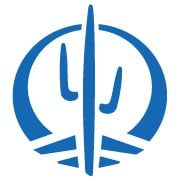
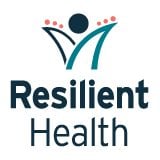


The facility name, logo and brand are the property and registered trademarks of Tucson Alcoholic Recovery Home, and are being used for identification and informational purposes only. Use of these names, logos and brands shall not imply endorsement. RehabNow.org is not affiliated with or sponsored by Tucson Alcoholic Recovery Home.

